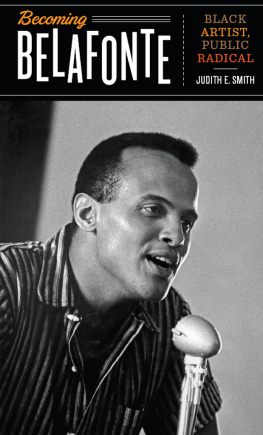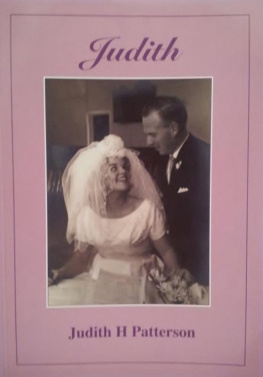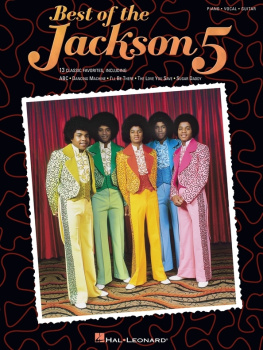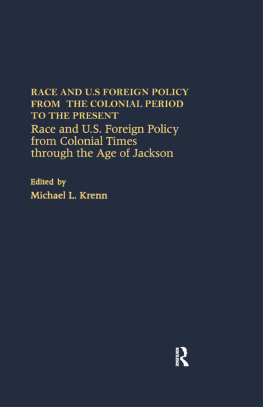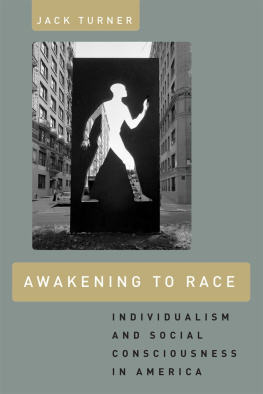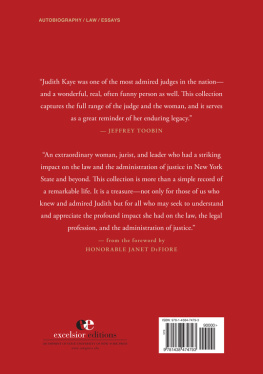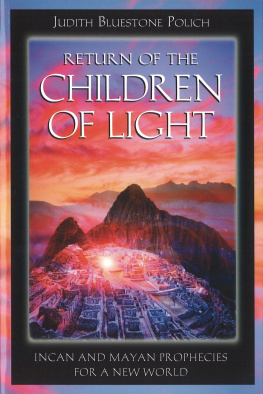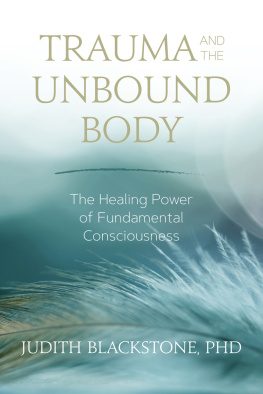Thank you for buying this ebook, published by NYU Press.
Sign up for our e-newsletters to receive information about forthcoming books, special discounts, and more!
Sign Up!
About NYU Press
A publisher of original scholarship since its founding in 1916, New York University Press Produces more than 100 new books each year, with a backlist of 3,000 titles in print. Working across the humanities and social sciences, NYU Press has award-winning lists in sociology, law, cultural and American studies, religion, American history, anthropology, politics, criminology, media and communication, literary studies, and psychology.
RACE CONSCIOUSNESS
NEW YORK UNIVERSITY PRESS
New York and London
Copyright 1997 by New York University
All rights reserved
Library of Congress Cataloging-in-Publication Data
Race consciousness : African American studies for the new century /
edited by Judith Jackson Fossett and Jeffrey A. Tucker ; with a
foreword by Nell Irvin Painter and Arnold Rampersad ; and an
introduction by Robin D.G. Kelley.
p. cm.
Includes index.
ISBN 0-8147-4227-0 (cloth : alk. paper).ISBN 0-8147-4228-9
(pbk. : alk. paper)
1. Afro-Americans. 2. Afro-AmericansHistory. 3. Afro
AmericansStudy and teaching. I. Fossett, Judith Jackson, 1965.
II. Tucker, Jeffrey A., 1966.
E185.R23 1996
305.896073dc20 96-42999
CIP
New York University Press books are printed on acid-free paper,
and their binding materials are chosen for strength and durability.
Manufactured in the United States of America
10 9 8 7 5 6 4 3 2 1
FOREWORD
AFRICAN-AMERICAN STUDIES
ENTERS THE NEW CENTURY
NELL IRVIN PAINTER and ARNOLD RAMPERSAD
Who knows what will happen to African-American Studies in the new century? The twentieth century witnessed the extraordinary flourishing of a field of study that began small. In the nineteenth century it arose mainly to deny racist dogma that was contemptuous of people of African descent and envisioned us as fit primarily for forced, uncompensated labor. Sad to say, after all these years, books, and scholars, such ideas persist among a large section of the population. African-American Studies, still bearing the burden of vindicating the raceto use a nineteenth-century formulationis still very much engaged scholarship, at least for most of us who are black.
When we entered the field in the early 1970swhat now seems to have been almost an eon agoit bore little resemblance to what we call African-American Studies today. Indeed, it barely had a name. The study of the history and culture of African Americans was the province of a small number of black scholars and an even smaller number of whites. Certain differences existed between the two major subfields within African-American Studies, history and literature. The dean of African-American history was John Hope Franklin, whose best-selling text, From Slavery to Freedom, had first appeared in 1947 and maintained its eminence through multiple editions. However, white scholars also played an important role in history. Slavery, among the most fertile and prestigious topics in American history, had attracted major white talents, such as Herbert Ap-theker, Dorothy Sterling, Gerda Lerner, and Herbert Gutman. Although none in any sense followed a traditional career, they were able to influence a number of younger academics, black and white, and generally helped stimulate the field of African-American Studies without always intending to do so. In addition, many of these whites were of the Left politically and brought an unusual zeal for social justice to their profession.
The situation was somewhat different in literature. In the late 1960s, J. Saunders Redding of Hampton Institute and then Cornell University was perhaps the most respected literary authority, and the white scholar Robert Bone, with his provocative history of black American fiction, probably the most frequently cited. Fewer white literary academics maintained a serious professional commitment to the study of black writing than white historians to the study of black history. In both cases, we younger students of history and literature in the late 1960s and early 1970s found ourselves largely on our own. We struggled with many factors, not least of all with the resistance to political questions that had become ingrained in literary study with the triumph of the values of the New Criticism starting in the 1940s and the resistance to Marxist scholarship among Cold War historians. In a period of difficult transition, black scholars such as Charles Davis at Yale, Donald Gibson at Rutgers, and Hollis Lynch at Columbia helped smooth the way for the younger generation, who eventually would make at least a passing knowledge of black literature and history almost fashionable in the American academy.
With the rise of the Black Power movement in the late 1960s, along with the Black Aesthetic and Black Arts movements, the task facing younger scholars in African-American Studies seemed straightforward. Using sources that mainstream scholars had overlooked or distorted, we would reveal the truth about our people. Who exactly were our people and what constituted truth became questions only much later. In the early 1970s, race meant blackness, and we all knew what we meant by that term. We could talk about the black community and the black church without being challenged, though the time had passed for easy usage of the Negro, a common formulation in the work of black as well as white writers in the 1960s. In the new Afro-American (as we called it then) scholarship of the early 1970s, black opposed white, without inordinate delving into the process of acquiring racial identities or into intraracial divisions.
With the recession of the mid-1970s and with increasing controversy about the standards and values of the field, the enrollment of graduate students doing African-American Studies declined. We began to worry that we might have no successors, as year after year passed with very few students following in our footsteps. For various reasons, some bright young men and women never completed their dissertations; others failed to receive tenure and even turned away from the academy. Even more frightening were the early deaths and serious illnesses of colleagues we had thought too young to face mortality. By the time we ourselves of that first generation had reached the ranks of senior scholars, we sometimes felt like dinosaurs.
Reports of the demise of African-American Studies turned out to be premature. By the mid-1980s younger people interested in the field started turning up in graduate schools, sometimes encouraged by ourselves and our colleagues, but mostly arriving on their own initiative and with a far more mature sense of the demands of university life. Energetic, bright, serious, they built on our work and the new fields that had grown up in tandem with African-American Studies: Womens Studies, Cultural Studies, Postcolonial Studies, Gay and Lesbian Studies. By the mid-1990s, they had remade African-American Studies.



